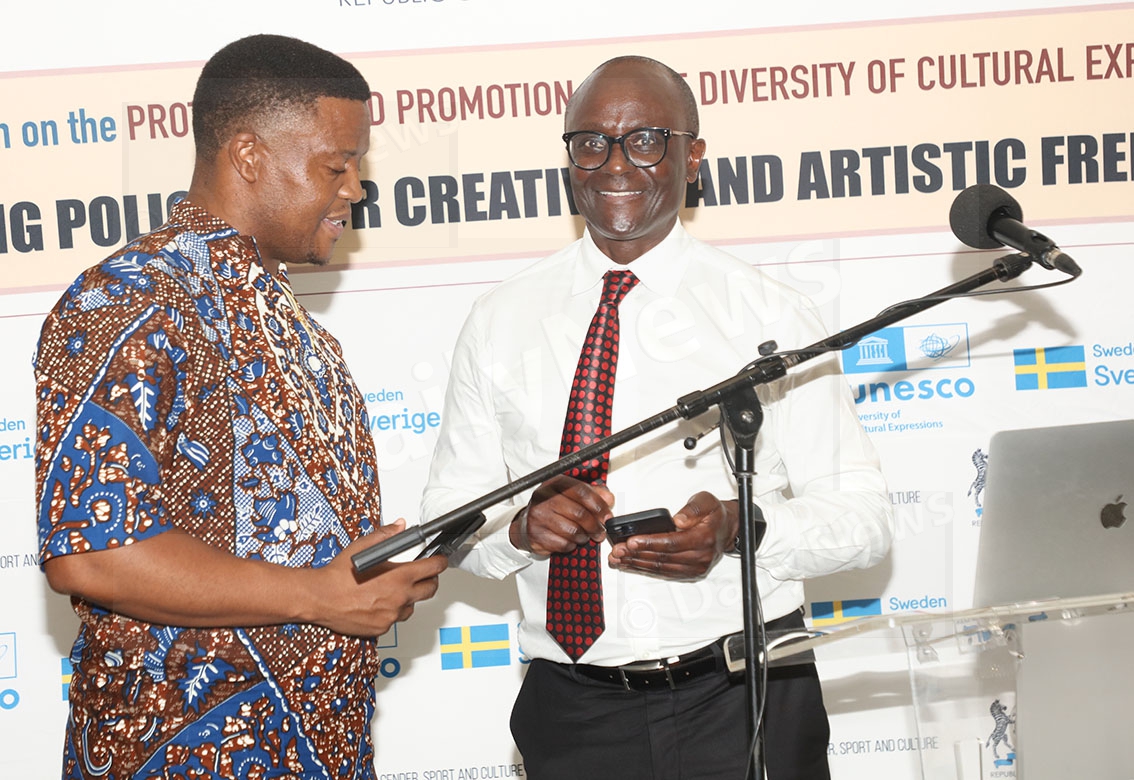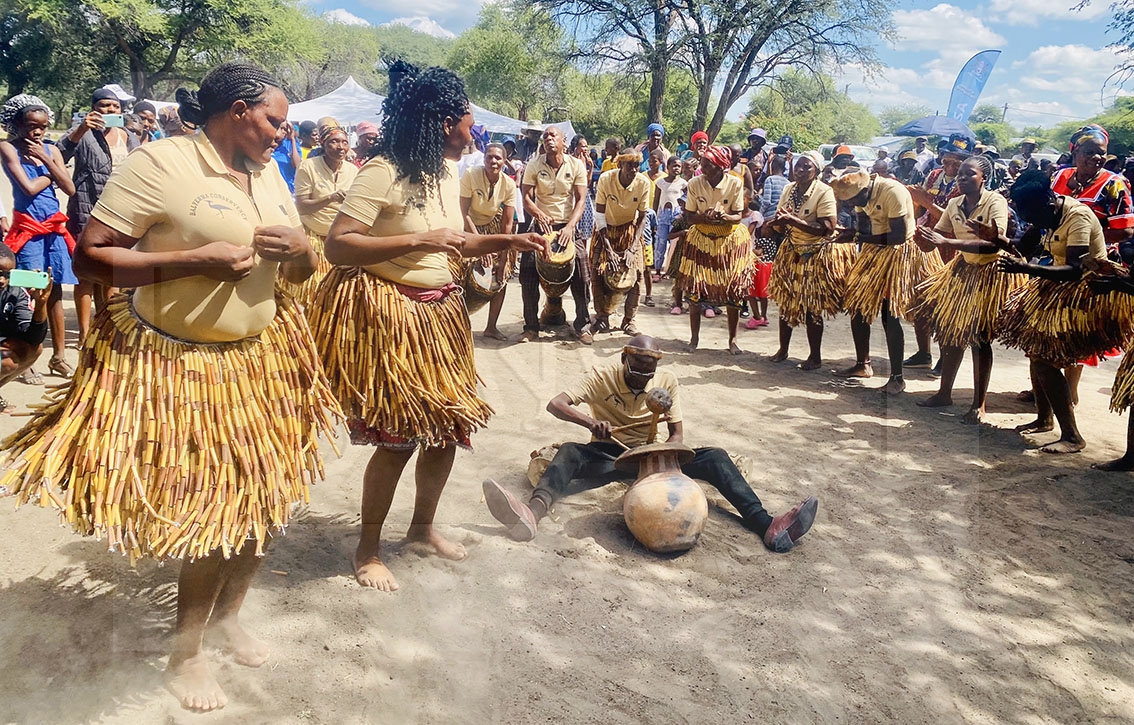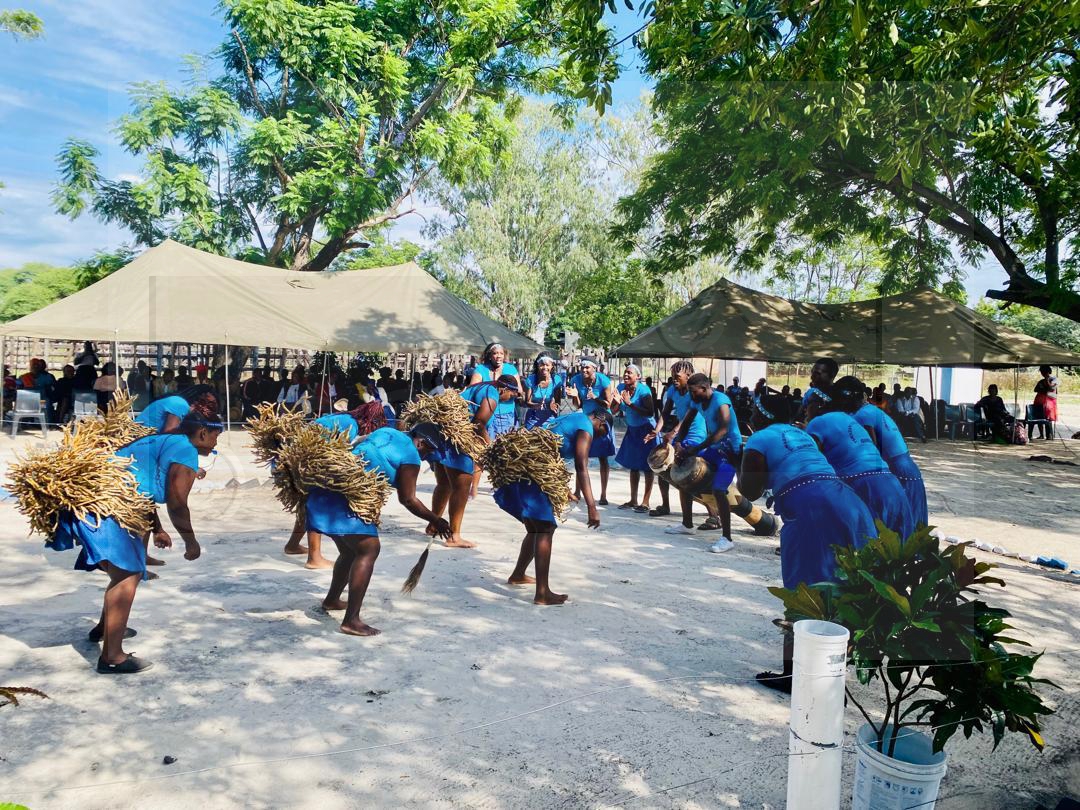Botswana presents QPR findings
23 Feb 2025
Ministry of Sport and Arts in collaboration with UNESCO Regional Office for Southern Africa, supported by Swedish International Development Cooperation (SIDA) recently presented the findings of the Quadrennial Periodic Report (QPR).
The QPR is a monitoring and priority-setting tool that evaluates how countries implement the 2005 Convention on the Protection and Promotion of the Cultural Diversity of Cultural Expressions, to provide opportunities of assessing the state of Cultural and Creative Industries (CCIs).
It highlights cultural policies, international cooperation effort and measures to promote cultural and creative industries (CCIs), artistic freedom and gender equality.
To explore such opportunities and show commitment, Botswana submitted a QPR in 2024, which is submitted every four years.
“The QPR is an opportunity for transformation. Through this process, we can gain deeper insights, identify challenges, and unlock new opportunities to ensure our creative industries thrive,” permanent secretary in the Ministry of Sport and Arts, Neo Chengeta said, adding that cultural and creative industries were powerful economic drivers and the world fastest growing sectors, yet remained vulnerable and often overlooked in public and private investment. ENDS
She called on all stakeholders, investors, and policymakers to recognise the value of the creative sector and not just as an artistic pursuit, but as a force for economic growth, job creation and national identity to ‘reshape policies for creativity, artistic freedom, and economic empowerment.’
Chengeta said the economic contribution of Botswana’s creative industries remained low. She said the sector had an untapped potential, with only 0.9 per cent contribution to the country’s GDP in 2022 and 5.46 per cent contribution of the copyright industries to the GDP in 2016.
For his part, secretary general of Botswana National Commission for UNESCO (NATCOM), Itseng Kwelagobe said the value of cultural expressions extended beyond economic contributions and that they were a reflection of identity, heritage, and shared humanity. “With your continued support and collaboration, we are confident that we will not only meet our obligations under this Convention, but also set new benchmarks for cultural development and innovation,” he said, applauding SIDA for its support in the matter.
Presenting the QPR findings, UNESCO expert, David Waweru expressed a need to develop a plan to integrate the 2005 Convention into national legislation and raise awareness on the 2005 Convention among the CCIs stakeholders. Waweru also said existing policies needed to be aligned with the Convention as well as address gaps on language and cultural policies.He also emphasised inclusive consultation across the public, private and civil society sectors.
Furthermore, Waweru noted some of the challenges such as capacity-building deficiencies with limited training and development opportunities for CCIs practitioners, which he said hindered the growth of the sector. The QPR report also identified funding amongst challenges. However, Waweru said there had been some achievements, which included the establishment of the National Arts Council through which a grant to support creative and cultural industries was launched. Government also recently introduced Artist Mobility Grant, which support local and international travel for artistes to foster their development.
For her part, SIDA representative, Elsa Helin described the Convention as a milestone in safe guarding artistic works, expressing its vitality in making arts sustainable and economically viable. ENDS
Source : BOPA
Author : Ketshepile More
Location : Gaborone
Event : presentation of report
Date : 23 Feb 2025








